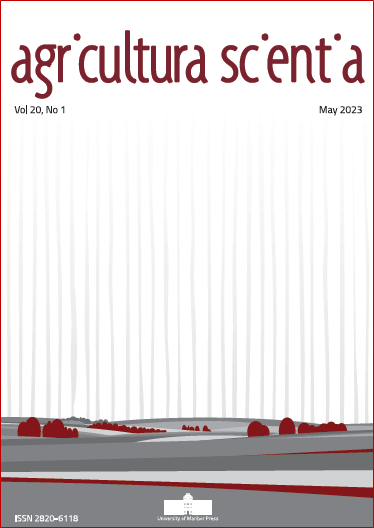The Parasite-Mediated Domestication Hypothesis
DOI:
https://doi.org/10.18690/agricsci.20.1.1Keywords:
domestication syndrome, endoparasites, genetic resistance, neural crest cells, endocrine system, miRNAAbstract
Based on the premise that parasites indirectly influence literally all of the main processes that otherwise underlie the domestication syndrome, it is hypothesised here that endoparasites (helminths and protozoa) have played an important mediating role in the process of (proto)domestication. The hypothesis predicts that the frequency of domestication syndrome traits such as tameness, depigmentation, mottling, piebaldism, floppy ears, short and curled tail, reduced size of the adrenal gland, etc. in the (wild) population increases i) with decreasing genetic resistance to parasites and/or ii) with increasing parasite load. According to the parasite-mediated domestication hypothesis, the features of the domestication syndrome could be genetically linked to genes related to resistance/tolerance to parasites, the role of miRNA in the process of epigenetic inheritance or the transgenerational inheritance of stress pathology.
Downloads
References
Downloads
Published
Issue
Section
License
Copyright (c) 2023 Janko Skok

This work is licensed under a Creative Commons Attribution-NonCommercial-NoDerivatives 4.0 International License.
